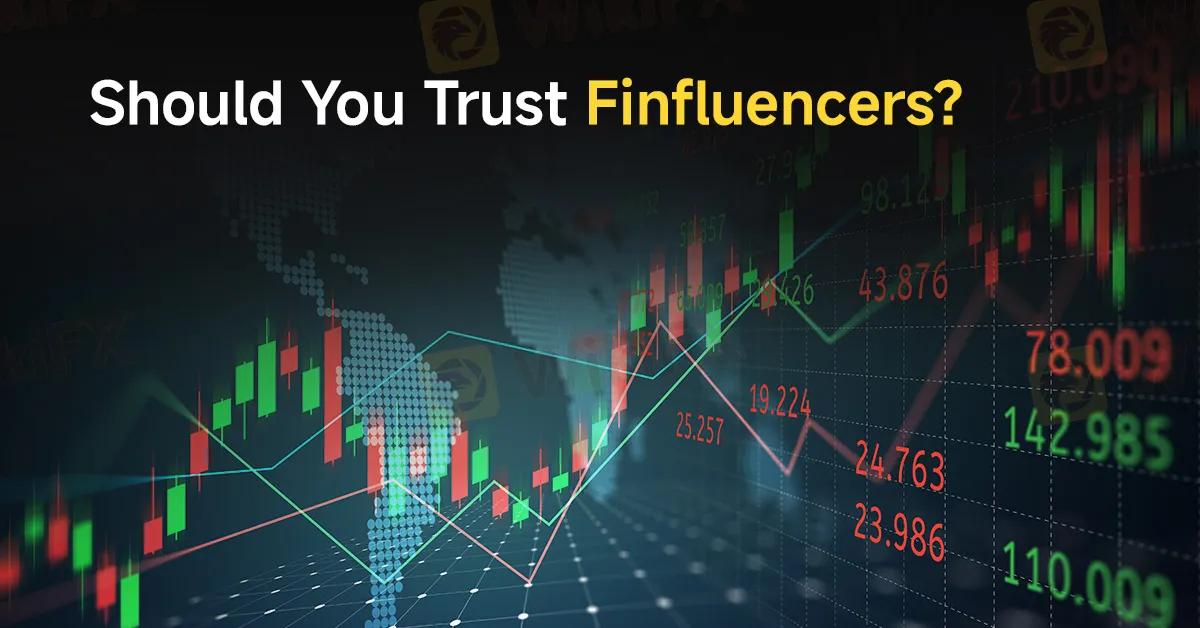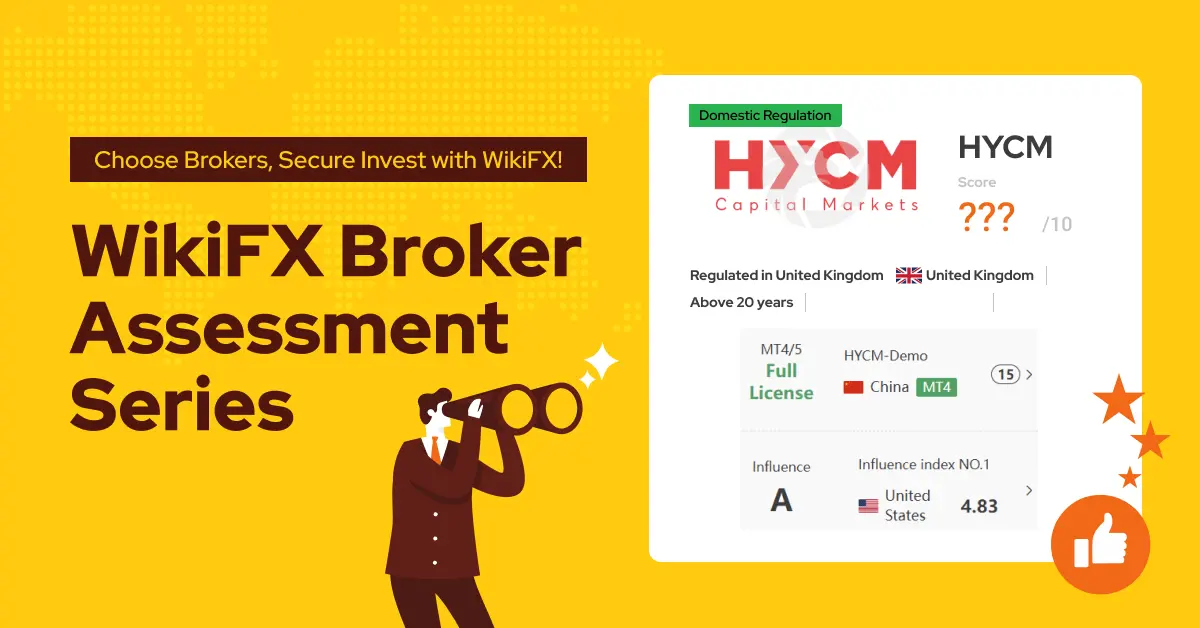简体中文
繁體中文
English
Pусский
日本語
ภาษาไทย
Tiếng Việt
Bahasa Indonesia
Español
हिन्दी
Filippiiniläinen
Français
Deutsch
Português
Türkçe
한국어
العربية
Should You Trust Finfluencers?
Abstract:Are financial influencers (finfluencers) trustworthy?

In the digital age, the financial landscape has undergone a significant transformation, not least due to the rise of financial influencers, or “finfluencers.” These individuals, often with large followings on social media platforms, offer advice on investments, trading strategies, and promote various brokers and trading platforms. While their content can be engaging and seemingly informative, it is crucial for the public to exercise caution. The credibility of these finfluencers is not guaranteed, and blindly following their endorsements can lead to significant financial risks.
Finfluencers have emerged as a powerful force in the financial world, leveraging their charisma and personal brand to attract followers. They simplify complex financial concepts, making them accessible to a broader audience. For novice investors, the appeal of a friendly, relatable guide in the intimidating world of finance is undeniable. However, this accessibility can also be a double-edged sword.

One of the most significant risks associated with finfluencers is the lack of regulation and oversight. Unlike financial advisors who are required to hold certifications and adhere to regulatory standards, finfluencers operate in a largely unregulated space. Their advice may not be scrutinized by any governing body, and there is no guarantee of its accuracy or reliability. This lack of oversight makes it difficult for the average investor to discern the quality of the information being presented.
Another hidden risk is the potential conflict of interest. Many finfluencers receive compensation from brokers or trading platforms for promoting their services. This creates a potential conflict of interest, as the finfluencers primary motivation may be financial gain rather than the well-being of their audience. Promotional content is often presented as genuine advice, blurring the lines between advertising and objective analysis.
Misleading credentials also pose a significant threat. Some finfluencers may exaggerate their credentials or experience to build credibility. Without thorough verification, it is challenging for followers to distinguish between truly knowledgeable individuals and those who are simply good at self-promotion.
Social media thrives on virality and trends, which can lead to a herd mentality among investors. When a finfluencer with a large following endorses a broker or platform, it can create a bandwagon effect, leading many to invest based on hype rather than sound financial principles. This herd mentality can inflate asset prices artificially and result in significant losses when the bubble bursts.
Given these risks, it is essential for investors to conduct their own due diligence rather than relying solely on the recommendations of finfluencers. Before following any financial advice, research the finfluencers background. Look for verifiable credentials, such as certifications from recognized financial institutions or a proven track record in the industry.
Being aware of potential conflicts of interest is also crucial. If a finfluencer is promoting a specific broker or platform, investigate whether they are being compensated for their endorsement. Transparency in these matters can often be found in disclaimers or fine print.
Moreover, do not rely on a single source of information. Cross-reference advice from multiple finfluencers and reputable financial news outlets. Diversifying the sources of your information can provide a more balanced view and help mitigate bias.
For significant financial decisions, it is advisable to consult with a certified financial advisor. They are legally obligated to act in your best interest and can provide personalized advice based on your financial situation and goals.
The allure of finfluencers is undeniable, particularly in a world where financial literacy is increasingly important. However, their popularity should not overshadow the necessity for caution and critical thinking. The financial world is fraught with complexity and risk, and the unregulated nature of social media advice can exacerbate these dangers. By remaining vigilant and conducting thorough research, investors can protect themselves from the potential pitfalls of blindly following finfluencers and make more informed financial decisions.

Disclaimer:
The views in this article only represent the author's personal views, and do not constitute investment advice on this platform. This platform does not guarantee the accuracy, completeness and timeliness of the information in the article, and will not be liable for any loss caused by the use of or reliance on the information in the article.
Read more

Will the Fed Cut Rates in 2025? What to Expect
The Federal Reserve has implemented multiple interest rate cuts in 2024, bringing the rate to a range of 4.25%-4.5% by the end of the year. However, whether the Fed will continue cutting rates or shift to rate hikes in 2025 remains uncertain. The Fed's policy direction depends not only on economic data but also on internal adjustments, the policy direction of the new president, and other factors.

WikiFX Review: Is HYCM still reliable in 2024?
HYCM is an online broker offering a wide variety of market instruments. WikiFX reviewed HYCM a few years ago. However, we wonder if this broker is still reliable in 2024 and the coming 2025. WikiFX has made a comprehension review of this broker to help you better understand the truth.

Top 5 Forex Brokers in the Philippines at the End of 2024
The forex market in the Philippines has seen significant growth over the past few years, with a wide range of international and local brokers offering their services to Filipino traders.

10 Blacklisted Brokers on WikiFX: Unveiling the Rogue Players
As 2024 draws to a close, the financial landscape remains fraught with deceptive practices and fraudulent brokers. WikiFX, a trusted broker regulatory query platform, has compiled a list of the 10 blacklisted brokers for December. These entities have earned their spot due to violations such as being unregulated, engaging in scamming activities, or forbidding client withdrawals. Here's a closer look at the brokers to avoid at all costs.
WikiFX Broker
Latest News
Japan to Take Action to Stabilize the Yen
Ringgit Remains Flat Amid Holidays, US Debt Concerns Loom
Taurex: Is it Safe to Invest?
WikiEXPO Global Expert Interview: Loretta Joseph——Unlock the forefront of digital finance
Vietnamese Police Bust $1.2 Million Crypto Fraud Case
XTB Receives Licenses to Operate in Indonesia & UAE
SEBI Bans Big "Finfluencers for Misleading Investors"
WikiFX New Year Bash: Chance to Win 70 USDT
Malaysia’s Securities Commission Enforces Ban on Bybit & Its CEO
Will Gold Shine Brighter in 2025?
Currency Calculator






